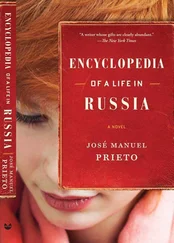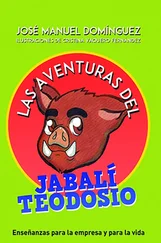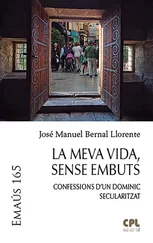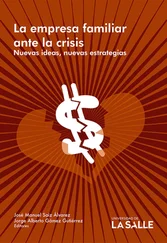The force and the shattering wonder of the passage where Marcel, on an exploration of the Arctic Circle, discovers a new and unnameable kind of water, a liquid thick as gum arabic. The commingled astonishment and intense chill this marvel arouses in his breast. And throughout this passage, the first description, the origin of a new machine, for he imagines this water, Petya, taking on density, condensing not only in the Writer’s mind but also in that of the most minor and insignificant technician. The household use to which we could put it: no longer laboriously excavating swimming pools, but erecting in any garden a beautiful cube of these calm waters like the hues of a changeable silk, says the Writer, in every possible shade of purple.
A Mountain of Water! Sparkling in the sun. Can you imagine it? Imagine it!
In which we would swim, plunging in without causing the structure to collapse, for it would hold its rectangular shape, its cubic constitution. We would ascend through it, our arms open wide, like birds in a solid patch of sky.
Quite a vision, isn’t it: men flying through this water that has somehow, we don’t know how, been condensed? Isn’t it?
And behind every house, in every garden, such a cube would rest on the surface of the earth where a swimming pool was once dug into it. Having learned to hold your breath and accelerate within the mass of water, pushing off from wall to wall, calculating and controlling your momentum so as to stick only your head outside, gulping in a mouthful of fresh air, your hair dripping, the sun sparkling on your wet head. Coming out, breaking the film of the surface before the astonished gazes, one head still below — heads up, guys! — laughing and taking a deep breath, shouting out for pure joy, then plunging back inside the cube.
A prodigy, a fabulous invention, this marvel that we would examine, attired like a couple in an engraving of the World’s Fair, the bowler hat, the tiny, unnecessary parasol stuck into the lawn. Or else both of us in shorts, young ourselves, turning our backs on the cube, grown accustomed to the miracle, however strange it may seem, for it’s still a miracle even in 2049, a miracle, and so is my vision of the young men rising up through the cube, slicing through it like birds soaring across the sky. The undulating block on the green lawn. Have you seen it? Shall I turn off the generator? The force field?
No, leave it on a moment longer, please — I’m still looking at it. (You should look, too.)
2
Or what amounts to the same thing: I sold the stones without a second’s hesitation, because the consequences that can be derived from the Book are more than clear: somewhere in the house, I could never figure out where, your father had a laboratory, a replica of the laboratory in the Urals. Let’s say it was in the cellar, and that he went down wearing a leather apron, a jeweler’s magnifying glass at his forehead, the straps cinched tight around his skull, through the graying hair. No pincers in his hands — though a scene in a movie would have required that — but I’m better informed about the scientific procedure: no pincers in my hands either. Unnecessary when you’re growing diamonds as big as garbanzos, diamonds he tossed into a glass jar or an empty vase like candies in a pediatrician’s office.
He would open the room, a dimly lit place, the shadow of his big body, lips opening in a smile that broke the outline of the shadow on the wall. Or else he would release the hatch on a sort of glass diving bell and step inside, wearing a waterproof suit made of rubber or asbestos. Then he would switch on the machine after priming the edges of the growth chamber with a paste made of enriched metal or whatever it was.
Your mother didn’t explain it to me in detail and I didn’t ask. Just this: a portable installation that Vasily took out from under the bed and took with him into the bathroom, or an enormous, stationary press installed in the depths of the garden or in the Buryat’s room, next to mine. He could fabricate diamonds of any color, any number of karats, she told me. Sapphire blue, ruby red, emerald green, raising or lowering the flame on the Bunsen burner (in a manner of speaking: in fact the apparatus was much more complex than that), increasing or diminishing the inclusions with extreme precision, sometimes leaving defects that seemed natural but were in fact perfidiously calculated. Enormous gems, like the Eugene or the Coromandel, even larger. At will. Essentially indistinguishable from natural stones. Not cubic zirconia: this is cubic zirconia and this, too — easy to tell the difference.
3
My first thought was red. Red for royal crimson, for the red of the sun. But then I understood: blue. For the sky, which isn’t blue, and for the sea, which isn’t blue either, and because blue is the color of deceit, the other colors of the spectrum filtered out: blue clearly favored in the design. For some occult reason, a cause I cannot discern: because life here, beneath the celestial vault, is a dream? And if that’s true, then make it a large stone, Vasily, blue in color and immense as an orb. Forget the small colored stones we could try to pass off as real. Lots of money in that, perhaps, but the immediate impact is diminished. A single stone, on the other hand, heightens it. At the very top of the scale that establishes in descending order the value of all the others.
For how can you think, even for a second, about an antigravity shield when you, Vasily, are the best and only one in the world, the best counterfeiter (or manufacturer — yes, manufacturer!) of diamonds? A man who could attract to himself — just as the metallic inclusions attract and allow to condense upon themselves, atom by atom — the wealth of an entire nation? The chaotic solution in suspension that is Russia today, reordered into a coherent grid of lines, structured around a king. Not at the top of a pyramid, not a pyramid: an immense sphere, a blue sphere, through which, traveling toward the center, descending toward the nucleus, the traveler from Vega would meet a king, a czar, you, Vasily, your lips carved in blue stone, illuminated like an orb.
Toward which we would conduct rows of noble electors, smoothing down the hair at their temples before entering, hats in hand, without any word floating before them, because we would have eliminated all commentary or text from their minds, anything that could possibly cloud the vision of that immense diamond, proof of the fathomless wealth of the man they must proclaim czar. Their toothless mouths, some with gold teeth, gaping open before the light and brilliance “of the largest diamond ever seen”—that, yes, easily. And that phrase, “the largest diamond ever seen,” would go in first of all and clean out the spot in their memory where the vision was to lodge and then gently set the immense diamond there in that region of burned-out neurons. To radiate out from there, to shine like a unique idea, grasped in a heartbeat: our czar! His eyes retro-illuminated by the light in their brains, regretting having met his gaze, denying having read the scientific reports you’d mentioned to them in the garden, that treatise on the biological life of stones. “In which journal? I’m not aware of that paper. In which academy, you say? In the Urals? We never go to the Urals. Do you know Dr. Brunstein, of Philadelphia? He was the first scientist I heard mention what you’ve just, etcetera.” All their impertinences, you know? Effaced as if by magic from their faces, first pale with an understanding of their error and then radiant at the opportunity to be among the first to serve you, to prostrate themselves before their king, to exclaim without a shadow of doubt: czar! rex! All would open their hearts to you, use their lips and the vehemence of their narration to elevate your figure, the story of your unique diamond and how they had doubted you at first and then thrown themselves at your feet to venerate you.
Читать дальше












